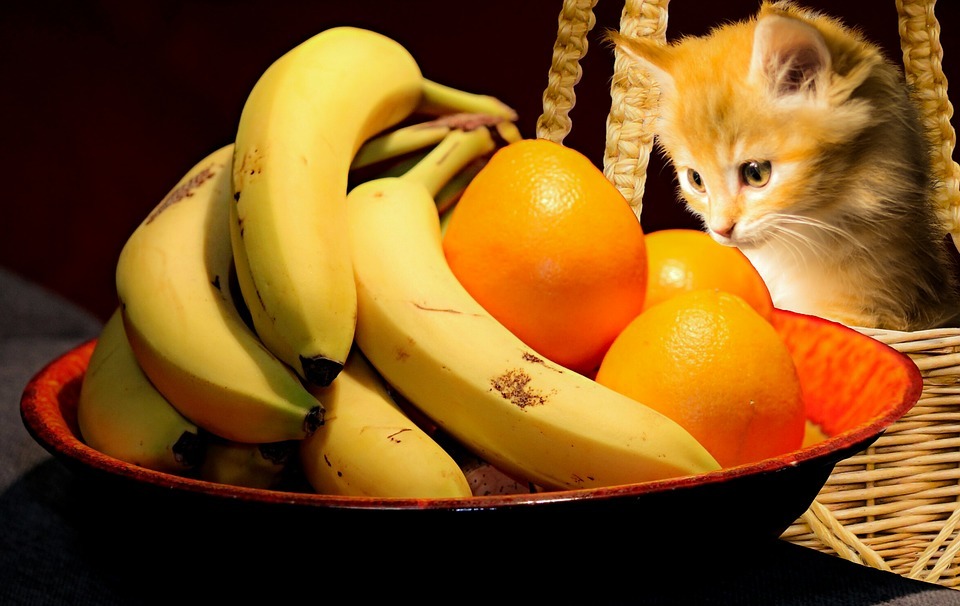This comprehensive guide will provide you with all the information you need to ensure your cat's safety from potentially harmful foods. We'll delve into the reasons why certain foods are toxic to cats, outlining specific dangers and symptoms. We'll explore common household items, as well as less obvious threats, and offer practical advice on how to create a safe environment for your furry companion.
Part 1: Understanding Feline Food Toxicity

1.1. Why Certain Foods are Harmful to Cats: A Look at Biology
Cats are obligate carnivores, meaning their digestive systems are designed to break down meat-based diets. Unlike humans, their bodies lack the necessary enzymes to efficiently process certain plant-based foods. This leads to difficulties in digesting these substances, potentially causing harmful reactions.
1.2. Factors Affecting Toxicity: A Multifaceted Issue
The severity of food poisoning in cats can be influenced by several factors, including:
Size and Weight: Smaller cats are more vulnerable due to their smaller body mass and lower tolerance for toxins.
Age: Kittens and elderly cats may have weaker immune systems and reduced organ function, making them more susceptible to poisoning.
Overall Health: Cats with pre-existing health conditions may be more prone to severe reactions due to compromised organ function.
Amount Consumed: The quantity of toxic food ingested significantly affects the severity of the poisoning, with larger amounts leading to more pronounced symptoms.
Type of Food: Different foods pose varying levels of toxicity. Some, like onions, can cause immediate gastrointestinal distress, while others, like chocolate, may trigger long-term health complications.
Part 2: Common Toxic Foods to Avoid

2.1. Fruits and Vegetables: A Garden of Hidden Dangers
Onions, Garlic, and Chives: The Allium Family's Toxicity
These vegetables contain thiosulphates, compounds that damage red blood cells and hinder their ability to carry oxygen. This can lead to anaemia, characterized by weakness, lethargy, pale gums, and increased heart rate. Severe cases can even result in organ damage.
Grapes and Raisins: A Mystery of Kidney Failure
The exact toxic substance in grapes and raisins remains unknown, but their consumption can lead to acute kidney failure. Symptoms include vomiting, diarrhoea, lethargy, decreased appetite, and increased thirst.
Avocados: A Persin Peril
Avocados contain a compound called persin, which is found primarily in the skin, seed, and flesh. While this compound doesn't pose a risk to humans, it can cause heart problems in cats, leading to fluid accumulation in the chest cavity, difficulty breathing, and even heart failure.
Mushrooms: A Fungus of Uncertainty
Some mushrooms are highly toxic to cats, while others are safe. Always avoid feeding your cat wild mushrooms, as identification is difficult and certain species can cause liver failure, kidney failure, and severe neurological problems.
Tomatoes: Ripe vs. Unripe
While ripe tomatoes are considered safe for cats in moderation, unripe tomatoes, leaves, and stems contain solanine, a toxic compound that can cause gastrointestinal upset, vomiting, diarrhoea, and neurological problems.
2.2. Human Foods: Temptations with Hidden Dangers
Chocolate: A Bitter Sweet Tragedy
Chocolate contains theobromine, a stimulant that cats cannot metabolize efficiently. Theobromine can cause hyperactivity, vomiting, diarrhoea, increased thirst, panting, tremors, seizures, and in severe cases, heart failure. The darker the chocolate, the higher the theobromine content and the greater the risk.
Caffeine: A Stimulant Shock
Caffeine, found in coffee, tea, energy drinks, and some medications, can cause similar symptoms to chocolate, including hyperactivity, restlessness, vomiting, diarrhoea, and even tremors.
Alcohol: A Toxic Brew
Alcohol is highly toxic to cats and can lead to liver damage, respiratory problems, coma, and even death. Even small amounts can have severe consequences, so never allow your cat to consume alcoholic beverages.
Xylitol: A Sweet Deception
Xylitol, a sugar alcohol often used as a sweetener in chewing gum, candy, and some medications, is extremely toxic to cats. It can cause a rapid decrease in blood sugar levels, leading to liver failure and death.
Salt: A Salty Surprise
Large amounts of salt can cause dehydration and electrolyte imbalances in cats. Symptoms include excessive thirst, vomiting, diarrhoea, lethargy, and seizures.
Yeast Dough: A Rising Danger
Yeast dough expands in the stomach, causing bloating, pain, and potentially life-threatening complications like stomach rupture.
Raw Meat and Fish: A Risk of Bacteria and Parasites
Raw meat and fish can contain harmful bacteria and parasites that can cause food poisoning in cats. Always cook meat and fish thoroughly to eliminate these risks.
2.3. Household Items: A World of Potential Hazards
Cleaning Products: Chemical Dangers
Cats are naturally curious and may be tempted to lick cleaning products, which can contain harmful chemicals. These chemicals can cause irritation, burns, and even organ damage. Always store cleaning products in secure locations out of your cat's reach.
Medicines: Prescription and Over-the-Counter
All medications, including prescription and over-the-counter varieties, should be kept out of reach of cats. Even small doses of human medications can be toxic to cats.
Pesticides and Insecticides: Toxic Treatments
Pesticides and insecticides can be highly toxic to cats, causing various symptoms like lethargy, vomiting, diarrhoea, tremors, seizures, and even death. Use alternative methods of pest control or consult a professional exterminator.
Essential Oils: Aromatic Risks
While some essential oils can be beneficial for humans, they can be toxic to cats, especially tea tree oil, pennyroyal oil, and wintergreen oil. These oils can cause respiratory problems, skin irritation, and even liver damage.
Part 3: Recognizing the Signs of Feline Food Poisoning
3.1. Common Symptoms: A Guide to Identifying Trouble
Vomiting: This is one of the most common symptoms of food poisoning in cats.
Diarrhoea: Diarrhoea can be watery or contain blood, indicating a potential problem.
Lethargy: A lack of energy and general weakness can signify poisoning.
Loss of Appetite: A decrease in appetite or complete refusal to eat is a warning sign.
Increased Thirst: Excessive thirst can be a sign of dehydration, often linked to poisoning.
Difficulty Breathing: Laboured breathing or rapid panting could indicate respiratory problems caused by poisoning.
Tremors: Muscle tremors can be a sign of neurological damage caused by toxins.
Seizures: Seizures are a serious symptom of poisoning that requires immediate veterinary attention.
Urinary Problems: Changes in urination frequency or urine colour could indicate kidney issues related to poisoning.
Abdominal Pain: Cats may exhibit signs of abdominal pain by crouching, vocalizing, or licking at their abdomen.
3.2. When to Seek Veterinary Attention: Acting Fast
If you suspect your cat has ingested a toxic food, seek veterinary attention immediately, regardless of whether they are exhibiting symptoms. Early intervention can significantly improve your cat's chances of recovery.
Part 4: First Aid and Veterinary Treatment
4.1. Immediate Actions: A Quick Response
Remove the Source: If you know what your cat has eaten, remove the source of the poison from their reach. This prevents further ingestion.
Contact a Veterinarian: Call your veterinarian or an emergency animal hospital as soon as possible. Be prepared to provide details about the food ingested, the amount, and the time of ingestion.
Gather Information: Take note of any symptoms your cat is exhibiting, as this will help the vet assess the situation.
4.2. Veterinary Treatment: A Tailored Approach
Inducing Vomiting: Depending on the type of food ingested and the time elapsed, your veterinarian may induce vomiting to remove the toxin from the stomach.
Activated Charcoal: Activated charcoal can be administered to absorb toxins in the digestive system, preventing them from being absorbed into the bloodstream.
Fluid Therapy: Intravenous fluids can be administered to combat dehydration and support vital organs.
Supportive Care: Based on the severity of the poisoning, your cat may require additional supportive care, including medication to control symptoms, oxygen therapy, or blood transfusions.
Part 5: Preventing Feline Food Poisoning: Creating a Safe Environment
5.1. Safe Food Practices: Keeping Toxic Foods Out of Reach
Store Toxic Foods Securely: Keep all potentially dangerous foods in sealed containers or out of your cat's reach. This includes storing them in high cabinets or using childproof locks.
Dispose of Food Waste Carefully: Never leave food scraps within your cat's reach. Use sealed bins with tight-fitting lids or dispose of them outdoors in designated areas.
Supervise Your Cat When Eating: Monitor your cat closely when they are eating, especially when they are around potentially toxic foods. This helps prevent accidental ingestion.
5.2. Creating a Safe Environment: Minimizing Risk Factors
Secure Medications: Keep all medications, both liquid and solid, securely stored in locked cabinets or medicine boxes out of your cat's reach.
Cleaning Product Storage: Store cleaning products in a secure location, preferably locked away from your cat.
Avoid Using Pesticides and Insecticides: Use alternative methods of pest control, such as natural repellents or traps, or consult a professional exterminator.
Part 6: FAQs: Addressing Common Concerns
6.1. What should I do if I suspect my cat has eaten something poisonous?
If you suspect your cat has eaten something toxic, contact your vet immediately. They will be able to advise you on the best course of action, which may include inducing vomiting or administering activated charcoal.
6.2. Is it safe to give my cat a little bit of human food?
It's generally best to avoid giving your cat human food. Many human foods are potentially toxic to cats, and even seemingly harmless foods can cause digestive upset or long-term health issues.
6.3. Can I use over-the-counter medications for my cat if they are sick?
Never give your cat human medications without consulting your veterinarian first. Many medications are toxic to cats, and even seemingly safe medications can cause serious problems.
6.4. How can I tell if my cat is allergic to a food?
Common signs of food allergies in cats include vomiting, diarrhoea, itching, and hair loss. If you suspect your cat may have a food allergy, consult your veterinarian for a diagnosis and appropriate treatment plan.
6.5. What are the long-term effects of food poisoning in cats?
The long-term effects of food poisoning in cats can vary depending on the severity of the poisoning and the type of food ingested. Some cats may experience permanent damage to their organs, such as liver or kidney damage.
6.6. Is there a way to prevent all cases of food poisoning in cats?
While it is impossible to prevent all cases of food poisoning in cats, you can significantly reduce the risk by following the safety guidelines outlined in this article. Remember to keep all toxic foods and substances out of reach, supervise your cat while they are eating, and promptly seek veterinary attention if you suspect poisoning.
Everyone is watching

Are Cat Ribs Flexible? Understanding Their Anatomy
CATS & KITTENSThis article delves into the fascinating world of feline anatomy, exploring the flexibility of cat ribs and ho...

Can Cats Eat Bananas? (Everything You Need to Know)
CATS & KITTENSThis article dives into the intriguing question of whether cats can safely enjoy the sweet, yellow fruit, bana...

Cat Lifespan: How Long Do Cats Live?
CATS & KITTENSThis comprehensive guide explores the factors influencing the lifespan of our feline companions, providing ins...

Can Cats Get COVID-19? What You Need to Know
CATS & KITTENSThis article will delve into the fascinating world of feline COVID-19 susceptibility. We'll explore whether ca...

Can Cats Eat Eggs? A Complete Guide to Egg Safety for Your Feline Friend
CATS & KITTENSWhen it comes to treating our furry companions, we all want to ensure we're doing what's best for them. Eggs...
